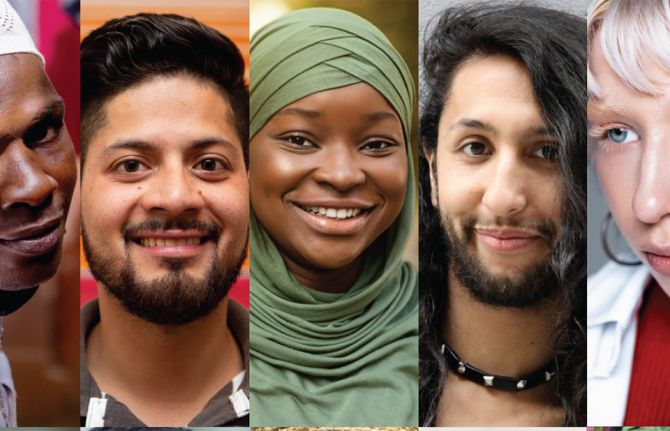

Feature Story
Key considerations to integrate HIV and mental health interventions
28 April 2022
28 April 2022 28 April 2022A new publication by UNAIDS and the World Health Organization (WHO) emphasizes the importance of integrating HIV and mental health services and other interventions, including linkages to social protection services, for people living with HIV and other vulnerable populations.
Mental health conditions increase the risk of HIV infection, and people living with HIV have an increased risk of mental health conditions, which are associated with lower retention in HIV care, increased risk behaviours and lower engagement with HIV prevention.
Furthermore, despite an increasing body of evidence showing that effective methods of prevention, screening and diagnosis of, and treatments for, common mental health conditions, including depression and anxiety, exist and can be implemented in low- and middle-income countries, services for mental health, neurological and substance use conditions are often not integrated into packages of essential services and care, including for HIV.
“We know that integration of screening, diagnosis, treatment and care for mental health conditions and psychosocial support with HIV services does not need to be expensive,” said Eamonn Murphy, UNAIDS Deputy Executive Director, a.i., Programme. “The integrated approaches that are people-centred and local context-specific ensure better HIV and overall health outcomes, well-being and quality of life.”
The publication is primarily intended for national and local policy-makers, global, regional, country and local programme implementers, organizations working in and providers of health, HIV, mental health and other relevant services, civil society and community-based and community-led organizations and advocates.
Although focus is on the integration of mental health with HIV services and other interventions, the considerations in the publication may be relevant to other services, including for HIV comorbidities such as tuberculosis, viral hepatitis and sexually transmitted infections.
“Our publication successfully brings together tools, best practices, case studies and guidelines that can help countries and facilitate the integration of interventions and services to address the interlinked public health challenges of mental health and HIV, all while improving access to care for persons who are the most vulnerable, such as adolescents and key populations,” said Meg Doherty, Director, Global HIV, Hepatitis and Sexually Transmitted Infections Programmes, WHO.
“With this joint UNAIDS/WHO publication, we hope we can collectively support countries, service providers and other practitioners, policy-makers, programme implementers and communities in their efforts to address HIV, mental health, neurological and substance use conditions for affected individuals in an integrated and impactful way,” said Devora Kestel, Director, Mental Health and Substance Use, WHO.
Integration of mental health and psychosocial support with HIV services and interventions, including those led by communities, is one of the key priority actions included in the Global AIDS Strategy 2021–2026: End Inequalities, End AIDS and the 2021 United Nations Political Declaration on HIV and AIDS: Ending Inequalities and Getting on Track to End AIDS by 2030. Both documents call for addressing the interlinked issues of HIV and mental health through integrated services by investing in robust, resilient, equitable and publicly funded systems for health and social protection, by reversing health and social inequalities and by ending stigma and discrimination.
The new publication stresses that the AIDS epidemic cannot end without addressing the mental health of people living with, at risk of or affected by HIV, ensuring equitable access to HIV services for people with mental health issues and conditions and achieving universal health coverage.



